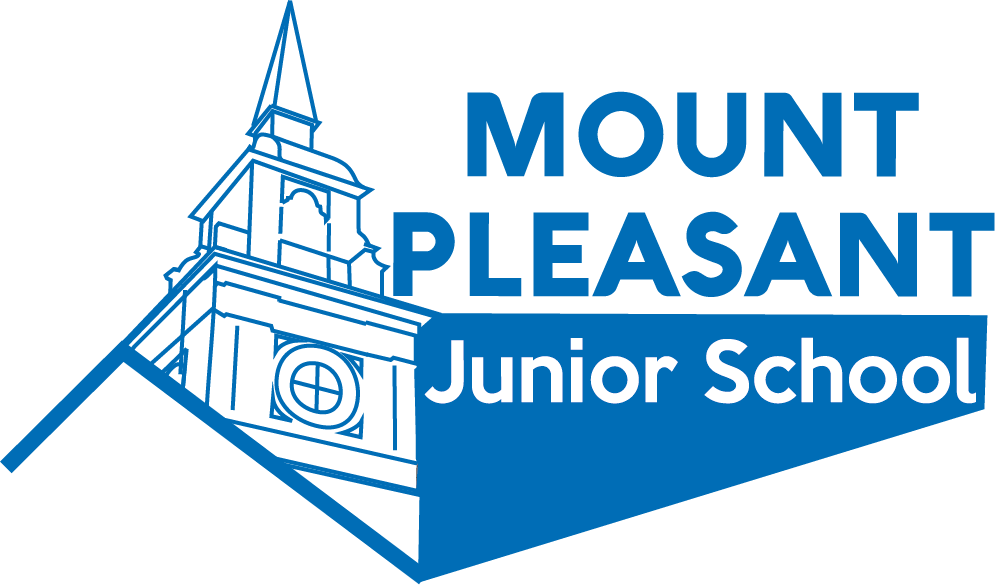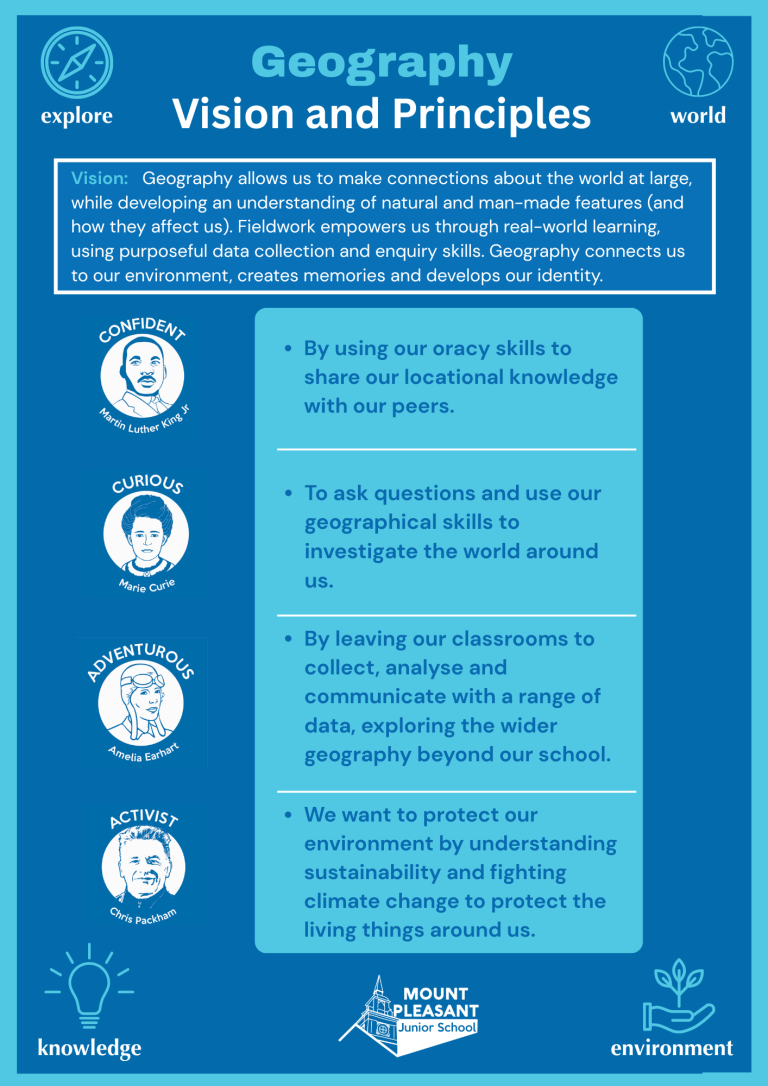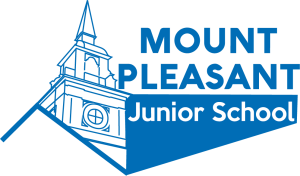How Geography is taught at Mount Pleasant Junior School
At MPJS, we enable our children to become skilled geographers through an enquiry- based curriculum that utilises our diverse coastal & river-bound city. Worthwhile enrichment opportunities act as a launch-pad for learning, with meaningful fieldwork opportunities that explore both the impact of humans upon the environment and vice versa, with both urban and river studies.
Within our curriculum, children have opportunities to be immersed in geographical learning through carefully sequenced, cumulative and robust learning questions, which both build on prior knowledge and deepen understanding of geographical concepts. This immersion, followed by opportunities to deepen and revisit, allow children to develop a strong understanding of geographical language and subject-specific vocabulary, as well as to know more and remember more. Learning is couched in dialogue which encourages rich discussion and analysis of key themes to establish a deep understanding of locational and place knowledge and human and physical processes. Acquisition of this substantive knowledge is facilitated by a curriculum that addresses geographical concepts of place, space, scale, interdependence, cultural awareness and diversity, environmental impact and sustainability. Children are competent to carry out geographical enquiries and are can apply skills in observing, collecting, analysing, evaluating and communicating geographical information. They are able to create written narrative and analyses, referencing similarities, differences and changes and utilising a variety of sources, such as maps, globes, atlases, aerial photographs and images.
Each learning question and year group builds on the geographical learning journey of the previous years, both in chronology and in the development of geographical skills and processes, so that our children are ready for KS3 and beyond and are imbued with a sense of the complexity and wonder of our world and the diversity of cultures within it.


